Description
Origin and History
In the wild, blue and gold macaws enjoy a wide range from Panama in Central America, extending into almost every country of northern South America. They have also been introduced in Puerto Rico.
Blue and golds typically live in the forests near rivers and swamps, though they can be found in a grassy savannah if it has tall trees. Most often traveling in pairs, macaws will gather in large flocks at certain times of the year or will meet up during the morning and evening hours to forage for food.
Wild blue and golds are an endangered species. Much of their population decline in the wild has been due to habitat destruction, hunting, and trapping. Sadly, before captive breeding programs, these young birds were quite often taken directly from the nest and sold for the pet trade. Many defensive parents died protecting their babies, and many young parrots did not survive.
Since 1935, the blue and golds have been bred successfully in the U.S. Breeders are readily available, and their prevalence makes them one of the more affordable large parrots.
Temperament
Their sociability and even, sweet disposition makes blue and gold macaws a great pet. Their intelligence, willingness to learn, and talking ability are a plus.
When allowed to socialize with a variety of people, blue and golds do very well adapting to different people and other birds. The blue and gold is a fantastic bird for tricks. They’re a popular headliner at bird shows, and many owners may even take them out around town with the help of bird leashes and car seats.
Around the house, these macaws may act like friendly dogs. They enjoy being near their owners and seek out attention. They are also content on their perch, watching the activity around them.
Speech and Vocalizations
Blue and gold macaws are capable of ear-shattering calls, which are usually not appreciated by close neighbors. They are not the best choice for those who live in apartments and condominiums or if you have small children who are startled by noise.
This bird is a great talker; it can learn quickly and aims to please. Training is relatively simple as long as you are consistent. They can learn a vocabulary of around 20 words and phrases. Given the clarity of their voice, many people consider them one of the best talking
Species Overview
COMMON NAMES: Blue and gold macaw, blue and yellow macaw
SCIENTIFIC NAME: Ara ararauna
ADULT SIZE: 33 inches from beak to tail feathers, wingspan can reach 40 inches or more, and they typically weigh over 2 pounds
LIFE EXPECTANCY: Can live 60 or more years, although most live about 30 years; some blue and golds have lived up to 100 or more

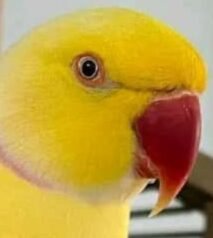

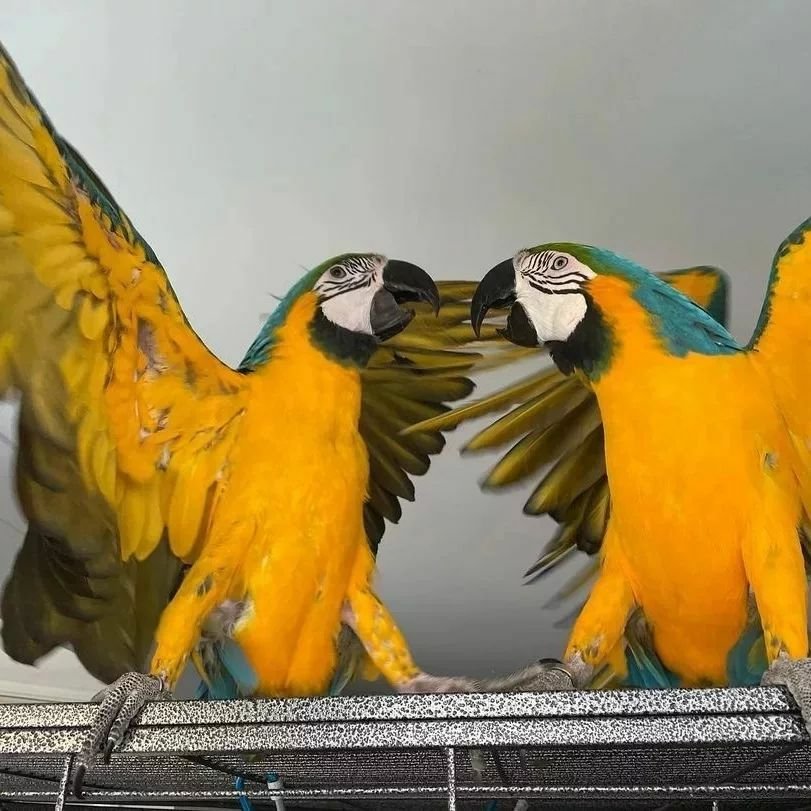
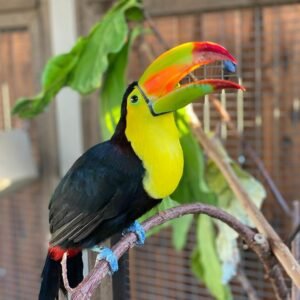
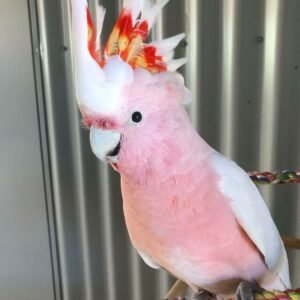
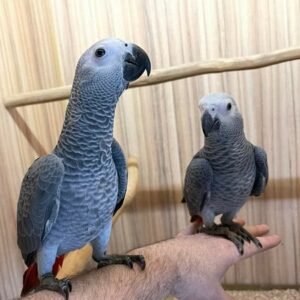
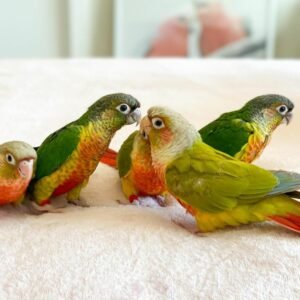
Reviews
There are no reviews yet.